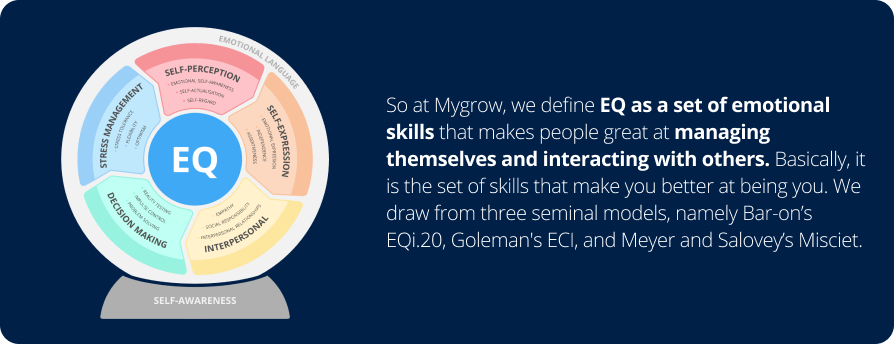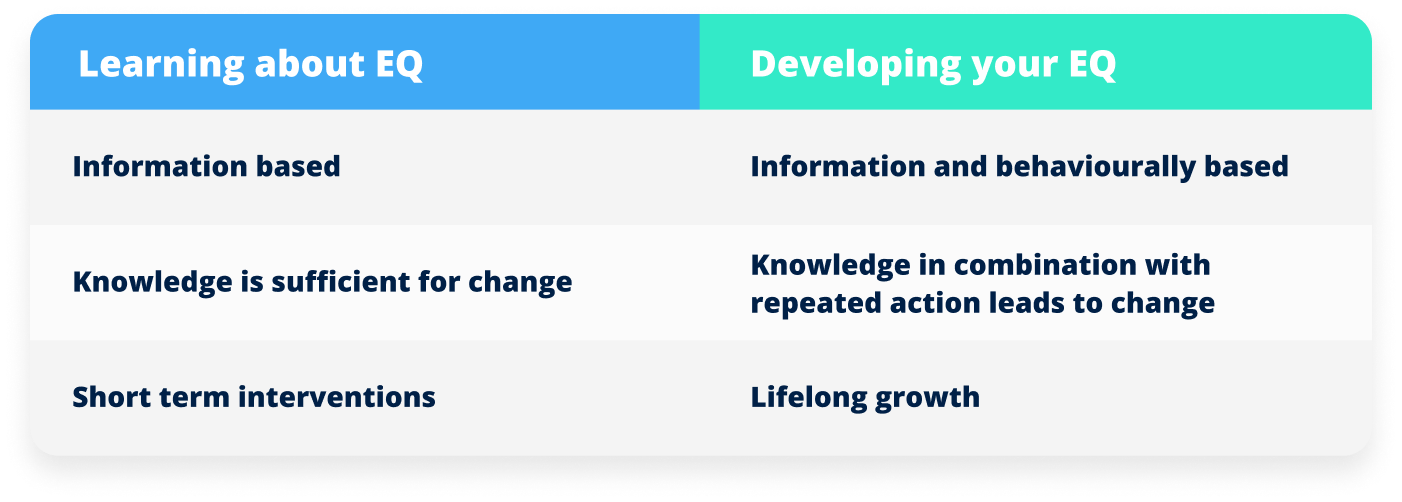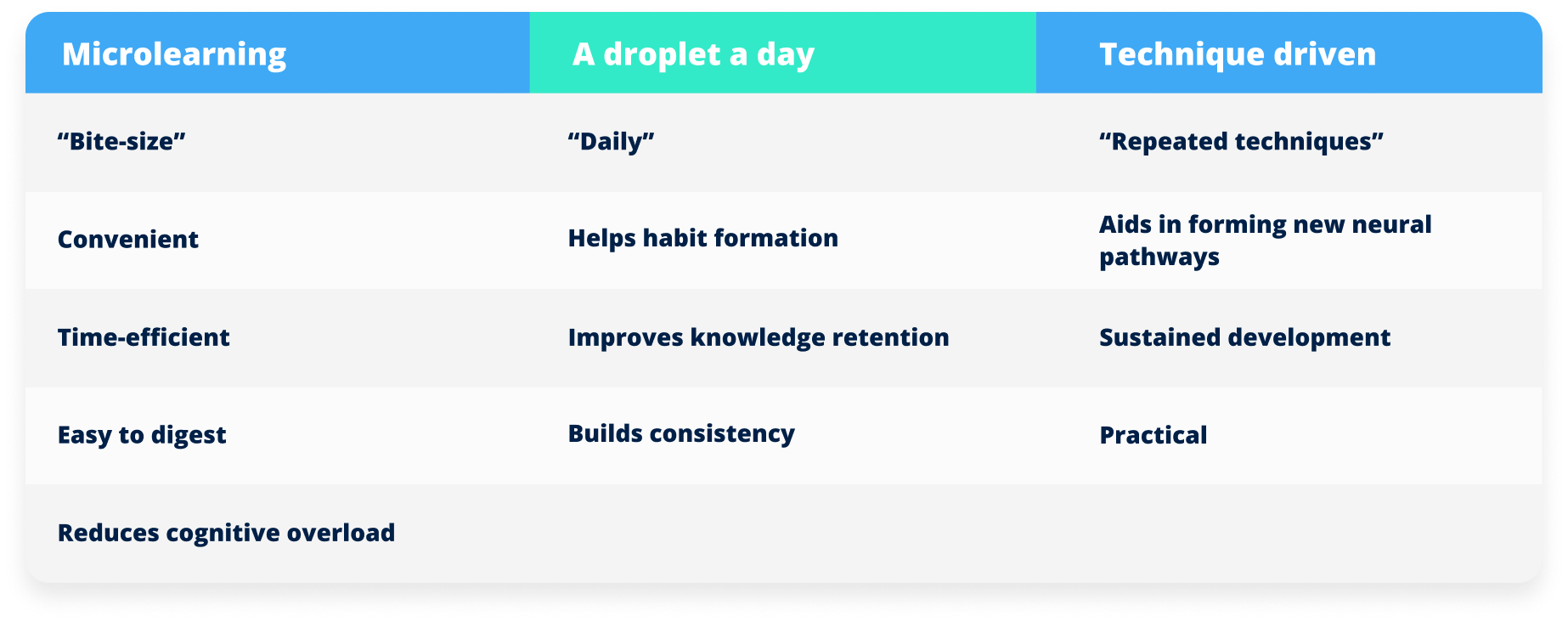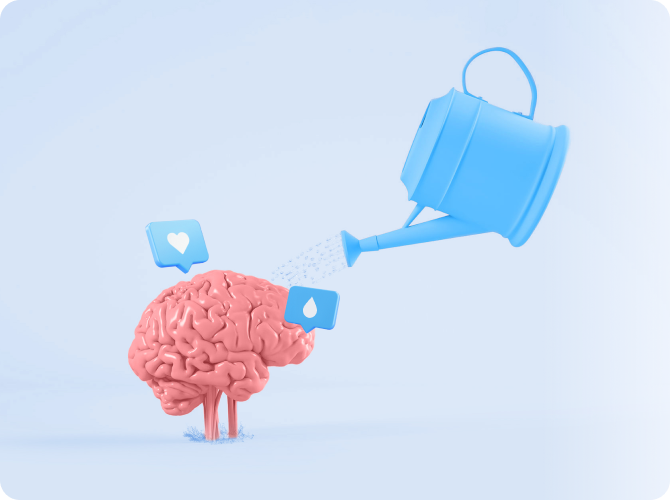What is Emotional Intelligence?
Many people talk about Emotional Intelligence (EQ) but often with an inadequate understanding. EQ is something very specific. Well, actually, it is a specific set of things.
Here are three definitions from the psychologists who first described it:
- “The ability to monitor one’s own and others’ feelings, to discriminate among them, and to use this information to guide one’s thinking and action” 1
- “The capacity for recognising our own feelings and those of others, for motivating ourselves and for managing emotions in ourselves and in our relationships”2
- “An array of noncognitive abilities, competencies and skills, which influence one’s ability to succeed in coping with environmental demands” 3
These definitions have 4 common aspects, describing EQ as 1) a set of skills; 2) rooted in our emotions; 3) helping us to effectively manage ourselves and 4) our relationships.


Typical EQ training relies on knowledge acquisition on a short-term basis. This would be the equivalent of attending an EQ workshop or doing a short course in EQ. The problem with this methodology is that while it may convey valuable information, it doesn’t really change you in the long term.
This approach focuses on giving you information about EQ, rather than helping you actually develop your EQ. Based on what we know about the brain, change and habit formation, such short-term interventions are insufficient in fostering meaningful behaviour change.
Mygrow turns this traditional training format on its head.
Our development journey is founded on a combination of microlearning and repeated techniques over time. You learn and implement a small amount, daily. This harnesses the power of neuroplasticity to ensure real change. We believe information alone is insufficient in fostering change. It’s important, but it’s just one part of the story of development.
How does Mygrow approach Emotional Intelligence development?

Microlearning
Mygrow is based on a methodology called microlearning. This means we break our learning journey down into small, bite-sized chunks we call ‘droplets’. The droplets are made up of a video, a quiz, and then an activity which we call a ‘technique’. This is something you do or implement based on the content you are learning. On average, a droplet takes you 15 minutes to complete.
Daily habit
In addition to this, our approach only allows you to do one droplet a day. This means you consistently engage with the content and techniques, which helps you make a habit of your EQ growth and harnesses the neurological advantages of repetition.
A habit is an automatic behavioural pattern, in response to a cue. It is the result of repeating a behaviour, in the same context, again and again. Repetition strengthens the association between the context and the action – forming a habit 4
When it comes to growth, the compounding value of habits can be leveraged to your advantage. To succeed in developing your EQ, it is best to make a habit out of doing your daily droplet.
Technique-driven
This is the third element of Mygrow’s approach. Not only do you learn about EQ competencies, but you are required to take action and actually put what you learn into practice. This translates to doing the same technique over a period of time.
The concept of neuroplasticity indicates that our brains are constantly being re-shaped and moulded throughout our lives by both our experiences and our thoughts 5. Where it used to be believed that our brains were relatively fixed after childhood, scientific advances have now clearly shown that our brains can and do change throughout our lives.
The key take-home from this is that we can change the neural pathways in our brains and strengthen those that we want to keep while weakening those that we want to lose. The way to do this is through consistent repeated behaviour over long periods of time, and the methodology on Mygrow is designed to facilitate this.
Development, growth and change are things we all hunger for. But it takes work, effort and time. Always. So Mygrow is more like a gym than online learning. You see, you can read fitness magazines all day long, but it won’t give you a sixpack. You have to exercise, properly. You can watch Mygrow videos all day too, it won’t improve your EQ. You have to do the techniques, properly.
Change happens through techniques over time. Change happens through repetition. Change happens on Mygrow, one droplet at a time.
Want to learn more? Start here…
Soft is Hard: Discovering the importance of developing your power skills The role of EQ in shifting Organisational CultureReference list
- Salovey, P., & Mayer, J. D. (1990). Emotional Intelligence. Imagination, Cognition and Personality, 9(3), 185–211.
- Goleman. D. (1998). Working with emotional intelligence. New York, Bantam.
- Bar-On, R. (1997). The emotional quotient inventory (EQ-i): A test of emotional intelligence. Toronto: Multi-Health Systems.
- Lally, P. & Gardner, B. (2010). Promoting habit formation. Health Psychology Review, 7(1), S137-S158.
- Hebb, D. (1949). The Organization of behaviour – a neuropsychological theory. New York: Wiley and Sons.


